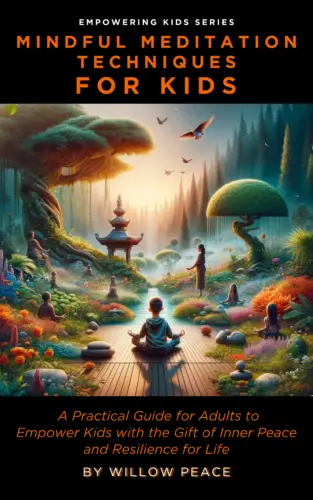 By Mateo Sol
By Mateo Sol
Guest writer for Wake Up World
The spiritual ego is the most dangerous type of ego of all.
If you aren’t mindful, it can wreak total destruction in your life – but not in a violent or aggressive way. Instead, the spiritual ego is disguised under the mask of “good intentions,” “higher vibration,” “awakened perspective” and humble pomposity.
Beware of the spiritual ego.
It’s a trap that many of us spiritual seekers can and will, at some point, fall into. And the longer we remain in that spiritual ditch, that stagnant standstill, the more likely we are to develop into a spiritual narcissist.
Indeed, spiritual narcissism is perhaps the most tragic malady to befall humanity of all. We’ll explore why a little later. But first:
What is the Spiritual Ego?
Firstly, let’s touch on the basics. The ego is our sense of self; it is the illusory “I” story we carry around in the world as an evolutionary survival mechanism. Yet the ego is the source of all our suffering and our feeling of being separated from that which we truly are which is boundless, whole, and infinite. We might call this Spirit, God/dess, Life, Oneness, Consciousness, and so on.
So what is the spiritual ego? The spiritual ego builds on top of this fundamental ego that we carry around. It is the ego on crack, the ego on steroids, the ego inflated beyond its usual garden-variety size. Yet the thing is, we don’t realize we’ve developed a spiritual ego until life well and truly starts getting messy.
How Does the Spiritual Ego Develop?
The spiritual ego is a product of spiritual materialism – that is, using spirituality to serve the ego, instead of approaching the spiritual path with the intent on trying to move beyond the ego.
When spiritual paths, practices, and concepts become a slave of the ego, this is the birth of the spiritual ego. In other words, when a person’s central idea about themselves is ruled by the belief that they’re a “spiritual person” this is the spiritual ego.
When being a “spiritual person” eclipses all else that a person is, this is the spiritual ego in action. Yes, there are positive benefits to building your identity around spirituality. But there are also some pretty scary consequences that we shouldn’t ignore.
The Development of Spiritual Narcissism
Walking the spiritual path properly is a very subtle process; it is not something to jump into naively. There are numerous sidetracks which lead to a distorted, ego-centered version of spirituality; we can deceive ourselves into thinking we are developing spiritually when instead we are strengthening our egocentricity through spiritual techniques. This fundamental distortion may be referred to as spiritual materialism.
– Chogyam Trungpa Rinpoche
Spiritual narcissism is the very culmination of spiritual egotism: it is the ego that has become so solid, so fixed, so unyielding in the idea of its own spiritual greatness that it is pathological. It is narcissistic.
As we know already, narcissism is a mental disorder where a person has an inflated sense of their own importance (amongst several other hairy issues). The exact same problem applies to spiritual narcissists: they have such unwavering belief in their own awakened perspective, their own “special” spiritual achievements and knowledge, that they cannot connect with (or tolerate) their humanity. Spiritual narcissists cannot tolerate other people either – even though they may fine-tune the external image of being compassionate or wise – others ultimately pose a threat to their delusional grandiosity.
Spiritual narcissism begins with spiritual materialism. Within spiritual materialism (the trap of using spirituality to serve the ego) there is always a seed of spiritual narcissism. And if that seed keeps being fed without going unchecked, without being uprooted or challenged, it grows and grows.
Eventually, we can become so sidetracked, so deluded by the ego that has used spirituality to make itself indestructible, that we are worse off on the spiritual path than when we began.
Examples of the Spiritual Ego
Some of these examples border on spiritual narcissism (or are flat out narcissistic), others can more typically be seen in the spiritual community. Let’s look at some examples of the spiritual ego:
- Claiming to have “special access” to a spirit guide/angel/spirit/ascended master for the purposes of self-aggrandizement
- Believing oneself to be the reincarnation of a superior being, famous spiritual historical figure, etc. (what does it really matter if one is?)
- Taking frequent pictures of one’s spiritual practice and posting them online in order to boost one’s self-image, status, and gain attention/validation
- Declaring that others can’t possibly understand you because you have attained a certain state of ‘high vibrational awareness,’ awakening, liberation, etc. – and showing contempt for those who aren’t at the same ‘level’ (instead of compassion)
- Using Dharma-talk to avoid being psychologically vulnerable, showing empathy, and facing human emotions (e.g., “Just let go and let be,” “You attracted that experience,” “Who is there to experience this?”)
- Looking down on “low vibe,” “unevolved,” “unawakened,” “asleep” people
- Boasting about and flaunting spiritual achievements or gifts
- Imitating what a “spiritual person” looks and sounds like
You get the picture.
I’m sure you can think of a few more examples, and you’re welcome to share them in the comments.
15 Signs of the Spiritual Ego
The spiritual ego is so dangerous because it is nearly impenetrable.
People can spend their entire lives (or lifetimes) stuck in the trap of unknowingly misusing spiritual words, ideas, practices, and paths to inflate their egos.
Sadly, the spiritual ego can result in instances of abuse and even murder such as Jonestown, the abuse committed by Bikram Choudhury (founder of Bikram yoga), Swami Rama (Indian yogi), Bhagwan Shree Rajneesh (spiritual teacher), Sogyal Rinpoche, Andrew Cohen, and even Chogyam Trungpa (who coined spiritual materialism), and so on. The cases of spiritual ego are so wide and varied they are impossible to include here.
The reality is that as spiritual beings having a human experience we are imperfect. Hell, I’ve fallen into the spiritual ego numerous times – and it’s not pretty. But the crucial thing is to practice humility, openness, and the willingness to be honest with ourselves – these qualities are the best defense against spiritual egotism and narcissism.
So, without further ado, here are signs of the spiritual ego and spiritual narcissism that you need to look out for (both within yourself and others):
- Overly publicizing (read: boasting) your special spiritual accomplishments
- Claiming a stance of superiority (directly or indirectly) due to one’s spiritual gifts or talents
- Attempting to transcend the physical/earthly and take on godlike qualities
- Believing that your connection with the Divine is somehow deeper or more special than other people’s connection
- Focusing on how “more spiritually evolved” you are than others and …
- Judging others for being “less awakened,” “asleep,” “unconscious”
- Attempting to look like, dress like, sound like a “spiritual” person
- Using spiritual words and concepts to avoid being wrong, mistaken or facing vulnerable emotions
- Flaunting how spiritual you are on social media (with photos that demonstrate spiritual postures, setups, locations, tools, etc.)
- Becoming overly identified with spiritual knowledge (and how much “you” know)
- Trying to convert people to your perception (preaching to them or debating)
- Resistance to being “called out” and resenting those who try to do this
- Claiming access to special and exclusive spiritual knowledge that others can’t access
- Lack of curiosity and receptivity to life
- Wearing a mask of niceness, positivity or wisdom
Essentially, those wound up in the woes of spiritual egotism frequently try to reaffirm their spiritual specialness to the world through covert and overt methods. However, more often than not, the spiritual ego is a slippery little devil that is hard to call out or define clearly, simply because we’re so close to it and find ways to justify it.
Why is the Spiritual Ego Dangerous?
Quite simply, the spiritual ego is so dangerous because it is dressed in robes of light. It appears to be awakened, illuminated, wise, and all-loving – and that’s what makes it so difficult to catch.
Furthermore, the spiritual ego makes us feel powerful, even untouchable which is precisely what the ego seeks to achieve. To challenge it challenges the very foundations of our own self-worth and self-image – and that can be positively terrifying. In fact, we can even feel like we’re committing a profane and sacrilegious act calling the spiritual ego out because it’s so inflated and has such a good opinion of itself (a delusion which we have totally bought into).
Not only that, but the spiritual ego is also dangerous because it limits all growth: it is the death of any transformation because to evolve means to go through the cycles of death and rebirth. And if the spiritual ego has “already arrived” there is stasis, there simply cannot be any more growth.
In fact, the deadliest virus on our paths is to believe that “we’ve arrived,” have become “enlightened,” or somehow spiritually superior to others. The ego has not only become narcissistic, but it has developed a full-blown God Complex; the state of believing that it is in actual fact God. But this is not in an egoless, non-dual way: this is pure ego-centrism, the very definition of darkness (or the absence of light).
The more ego-based we are, the further we are from the Light of Consciousness which goes beyond the self. And if residing in the ego equals a disconnection from the Divine, living from a place of ego-centric God Complex goes one step further: it is like living in total darkness – the very definition of hell.
When a person is living in hell, they will harm others. This is basic knowledge that even a child could understand. When there is a total absence of light, there is only darkness – and how can a person see clearly, feel clearly, think clearly, or behave clearly in such a state? The result is suffering, both for the one experiencing the God Complex and those unfortunate souls around him/her.
How to Stop the Spiritual Ego
As I mentioned previously, we need to approach the spiritual path with humility, openness, and the willingness to be honest with ourselves.
A crucial place to start is by practicing a combination of self-love and shadow work – two inner work practices.
We all have a shadow side (i.e., the face of the ego that isn’t presented to the public), and we need to become aware of it in order to prevent issues such as spiritual egotism and narcissism from arising.
If you would like to learn more about shadow work, see our free shadow work guide.
You can start by asking yourself questions such as:
- “If I saw someone else behave the way I do, what would I think of them?”
- “Am I willing to face my inner contradictions – and if there is resistance, what doesn’t the spiritual ego want me to see?”
- “In what areas do I feel spiritually superior to others?”
- “How consistent am I in what I feel, think, and do?”
You can also ask trusted friends, loved ones, or spiritual mentors to help point out areas where you might be falling into spiritual delusion. Introspective journaling (see our shadow work journal), is also another way of calling out the spiritual ego.
What are your thoughts about spiritual narcissism and the spiritual ego? I’d love to hear your experiences in the comments below. Also, feel free to suggest any methods that can help people guard against this spiritual trap.
Originally published at LonerWolf and reproduced here with permission
Recommended articles by Mateo Sol:
- Synchronicity: 7 Ways to Interpret and Manifest It
- Feeling Alone: 13 Ways to Stop Feeling So Lonely and Isolated
- Sigil Magic: How to Create Symbols That Manifest Your Destiny
- Ayni, or Sacred Reciprocity: 5 Ways to Manifest True Abundance in Your Life
- 12 Signs You’ve Lost Your Authenticity and are “Selling Out”
- 6 Signs You’re Experiencing Spiritual Maturity
- How To Induce a Trance State for Deep Psychospiritual Work
- 11 Traps Sabotaging Your Spiritual Growth
- Hypnagogia: The Trippy Mental State That is the Key to Deep Self-Discovery
- 21 Signs You’re Experiencing “Soul Loss”
About the author:
Mateo Sol is a prominent psychospiritual teacher whose work has influenced the lives of thousands of people worldwide. Born into a family with a history of drug addiction, schizophrenia, and mental illness, Mateo Sol was taught about the plight of the human condition from a young age. As a spiritual guide and teacher, Sol’s mission is to help others experience freedom, wholeness, and peace in any stage of life. See more of his work at lonerwolf.com.
This article, Spiritual Ego: 15 Signs of a Spiritual Narcissist, was originally published on lonerwolf.com, reproduced with permission.
Psilocybin mushrooms, also known as “magic mushrooms,” are reemerging as powerful tools for emotional and spiritual healing. Backed by scientific research, these sacred medicines have shown promise in addressing anxiety, depression, PTSD, and more. However, working with psilocybin requires preparation, intention, and integration to ensure safe and meaningful experiences.
In this 7-week course, a leading herbalist and expert in psilocybin will guide you through every step of the journey. You’ll learn the history, science, and best practices for safe use and how to prepare for your experience, set intentions, and integrate insights into your daily life. Whether you’re curious or ready to take the next step, this course offers the support you need.
Start your journey toward emotional wellness and spiritual growth today. Sign up for this transformative online event and discover how psilocybin mushrooms can help you unlock your fullest potential. Don’t wait — take the first step now!
 If you’ve found value in our articles, we’d greatly appreciate your support by purchasing Mindful Meditation Techniques for Kids—A Practical Guide for Adults to Empower Kids with the Gift of Inner Peace and Resilience for Life.
If you’ve found value in our articles, we’d greatly appreciate your support by purchasing Mindful Meditation Techniques for Kids—A Practical Guide for Adults to Empower Kids with the Gift of Inner Peace and Resilience for Life.
In the spirit of mindfulness, we encourage you to choose the paperback version. Delve into its pages away from screen glare and notifications, allowing yourself to fully immerse in the transformative practices within. The physical book enriches the learning process and serves as a tangible commitment to mindfulness, easily shared among family and friends.
Over the past few years, Wake Up World has faced significant online censorship, impacting our financial ability to stay online. Instead of soliciting donations, we’re exploring win-win solutions with our readers to remain financially viable. Moving into book publishing, we hope to secure ongoing funds to continue our mission. With over 8,500 articles published in the past 13 years, we are committed to keeping our content free and accessible to everyone without resorting to a paywall.








